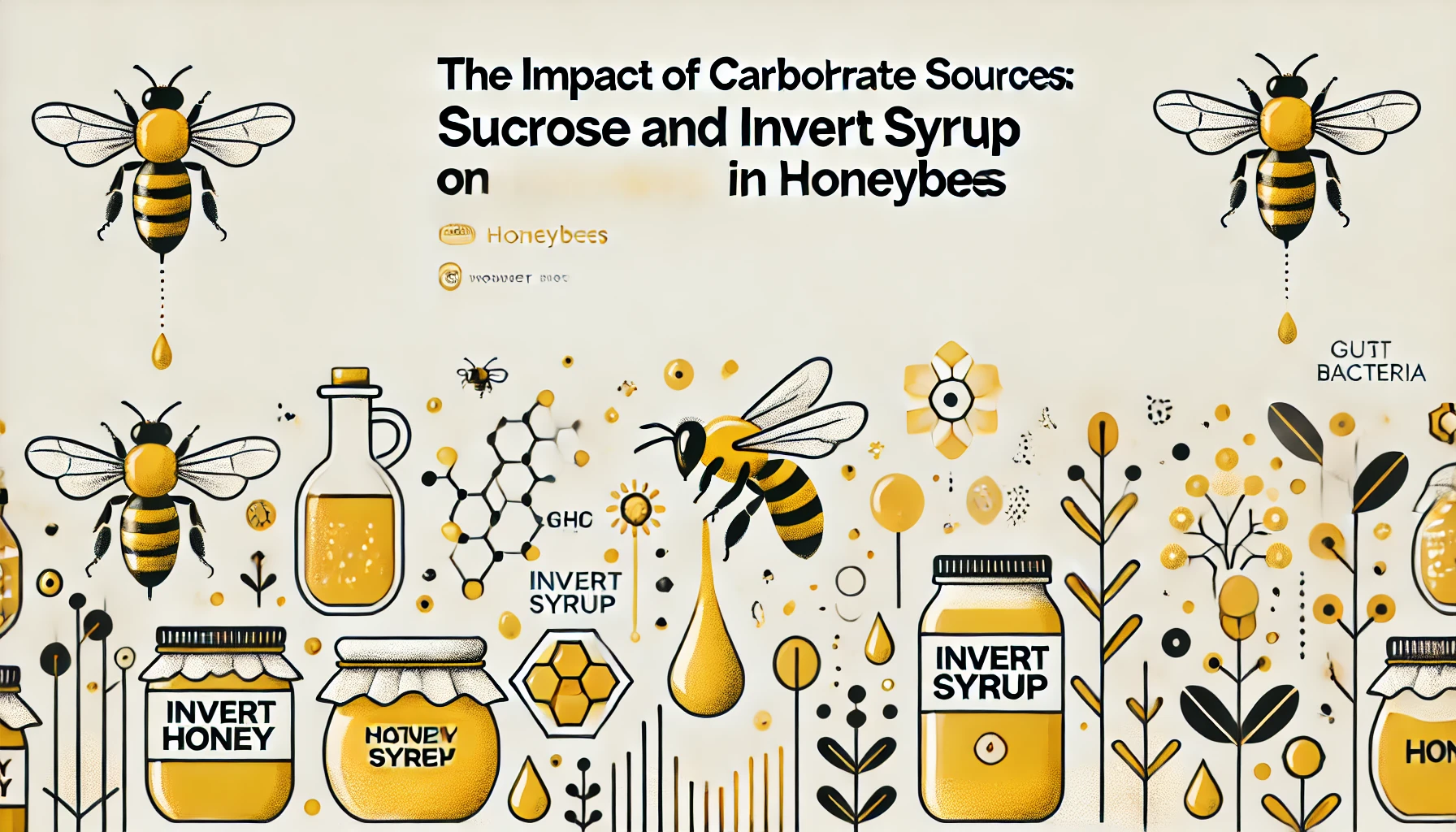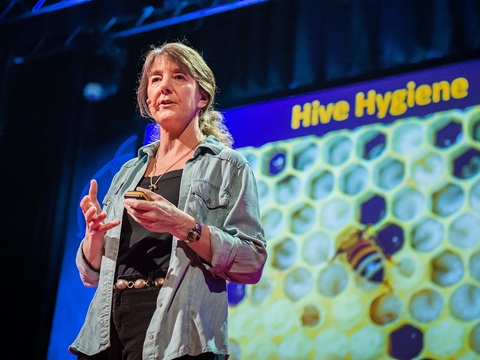Does your mozzarella refuse to stretch or just burn? The secret is science. From "pasta filata" to the crucial role...
The Impact of Sucrose, Invert Syrup, and Corn Syrup on Honey Bee Microbiome and Health
How artificial feeding affects the quality of your honey
Honey bees naturally feed on nectar and pollen to meet their energy and health needs. Nectar, which constitutes a major part of their diet, contains a variety of compounds including water, pollen, and sugars such as glucose, fructose, and sucrose. Flowers typically produce nectar with over 35% sugar content, which honey bees collect and convert into honey with a high sugar concentration.
Honey produced by bees consists of approximately 82% simple sugars (38% fructose and 31% glucose), with less than 2–4% sucrose. However, during periods such as late winter or early spring when natural nectar is unavailable, beekeepers often resort to artificial feeding sources like sucrose, invert syrup, and high-fructose corn syrup (HFCS) to sustain their colonies. Nevertheless, these artificial feeding sources can have varying effects on bee health and honey quality.
In this article, we examine the impact of different carbohydrate sources on the digestive system and gut microbiome of honey bees. We will also discuss the long-term consequences of using these artificial feeding methods. Please stay with us until the end of the article.
Carbohydrate Sources in Honey Bee Nutrition
Honey bees naturally rely on floral nectar as their primary source of carbohydrates. However, during seasons when natural nectar is scarce—such as winter and early spring—beekeepers use artificial carbohydrate sources like sucrose (white sugar), invert syrup (a mixture of glucose and fructose), and high-fructose corn syrup (HFCS) to feed their colonies.
These artificial feeding sources can help maintain bee health and prevent malnutrition under harsh conditions. However, long-term use may have varying effects on overall bee health, potentially leading to changes in gut microbiome and metabolism. Therefore, selecting the right feeding source and proper timing are critically important.
Impact of Artificial Carbohydrates on Metabolism and Gene Expression
Using artificial carbohydrates like sucrose and high-fructose corn syrup (HFCS) can significantly affect honey bee metabolism and gene expression. These carbohydrates help provide quick energy when natural resources are limited. However, studies have shown that prolonged consumption may negatively impact the expression of genes related to the immune system, oxidative stress, and fat metabolism.
Research indicates that honey bees fed artificial carbohydrates over extended periods experience higher levels of oxidative stress. This can reduce the efficiency of their antioxidant defense systems, making them more vulnerable to diseases. Additionally, changes in the expression of immune-related genes may weaken bees' resistance to pathogens.
The Honey Bee Gut Microbiome
The gut microbiome (resident microbes) of honey bees consists of a community of beneficial bacteria that play a vital role in maintaining digestive and immune health. This microbiome includes 8 to 10 core bacterial phylotypes, each with specific functions. Among the most important are Gilliamella apicola and Snodgrassella alvi from the Proteobacteria group, as well as species of Lactobacillus and Bifidobacterium.
These bacteria assist bees in digesting food and producing beneficial metabolites such as organic acids, including acetic and lactic acid. These metabolites not only help maintain the pH balance in the gut but also protect bees against pathogenic agents. A healthy microbiome is essential for bee survival, and any disruption can endanger bee health and ultimately the entire colony.

Note: Feeding with invert syrup means feeding honey bees artificially and moving away from natural honey production!
Impact of Artificial Carbohydrate Feeding on Gut Microbiome
Feeding honey bees with artificial carbohydrates such as sucrose and corn syrup can have varying effects on their gut microbiome. Studies have shown that long-term feeding with these substances can lead to a decline in beneficial bacteria such as Lactobacillus and Bifidobacterium. These bacteria play a key role in maintaining microbial balance and producing protective metabolites.
In contrast, natural feeding with nectar and honey is associated with increased diversity and abundance of these beneficial bacteria, contributing to overall bee health. A reduction in beneficial bacteria due to artificial feeding can disrupt metabolic processes and reduce bees' resistance to diseases and stressors. Therefore, feeding with natural sources or suitable alternatives like invert syrup—which have less impact on the microbiome—is recommended.
Comparison of Different Syrups' Effects on Honey Bee Microbiome
| Feeding Source | Impact on Microbiome | Recommendation |
|---|---|---|
| Sucrose | Reduces diversity of Lactobacillus and Bifidobacterium | Limited use, only when necessary |
| Invert Syrup | Maintains diversity and abundance of beneficial bacteria | Recommended option for artificial feeding |
| Corn Syrup (HFCS) | Reduces microbial diversity and increases harmful bacteria | Only in emergencies and in limited amounts |
Long-Term Consequences of Artificial Feeding
Long-term feeding with sucrose may have negative consequences on honey bee metabolism. Research has shown that continuous sucrose consumption can negatively affect the expression of genes related to fat and energy metabolism, making bees more susceptible to diseases.
On the other hand, invert syrup, due to its composition of glucose and fructose, has positive effects on bee health and helps maintain gut microbial diversity. By reducing metabolic stress on bees' digestive systems, invert syrup demonstrates better long-term performance compared to sucrose.
Summary and Key Recommendations
- Invert Syrup: The best option for artificial feeding, with positive effects on microbiome and bee health.
- Sucrose: Should only be used when necessary and with precise timing.
- Corn Syrup (HFCS): Due to negative effects, use only in emergencies and in limited amounts.
Natural, Healthy, and Pure Honey
At HoneyHub, we take pride in honey quality and honey bee health. All our honey is produced without artificial feeding and is directly supervised by beekeeping specialists.
🛒 Buy Natural Honey NowFrequently Asked Questions
Why should artificial feeding be used for honey bees?
Artificial feeding is used when natural nectar is scarce—such as in winter or early spring—to prevent colonies from suffering malnutrition.
What is the difference between sucrose, invert syrup, and corn syrup?
Sucrose is plain sugar, invert syrup is a mix of glucose and fructose, and corn syrup contains high levels of fructose. Each has different effects on bee health.
Which artificial feeding source is best for bees?
Invert syrup is a suitable option due to its easier digestibility and positive impact on the honey bee gut microbiome.
Is long-term feeding with sucrose harmful to bees?
Yes, prolonged sucrose consumption can reduce gut microbiome diversity and make bees more vulnerable to diseases.
When should bees be fed sugar or syrup?
During periods of natural nectar scarcity—such as winter or early spring—but always before the honey production season begins.
















Latest comments